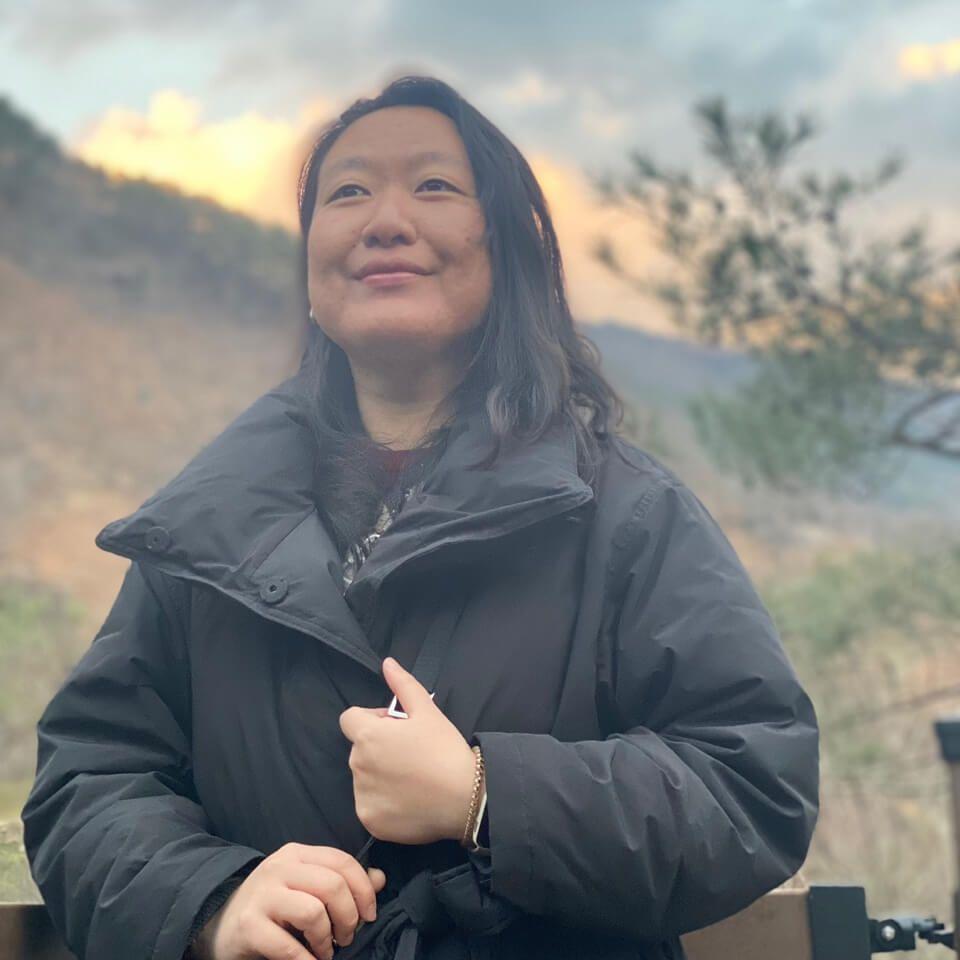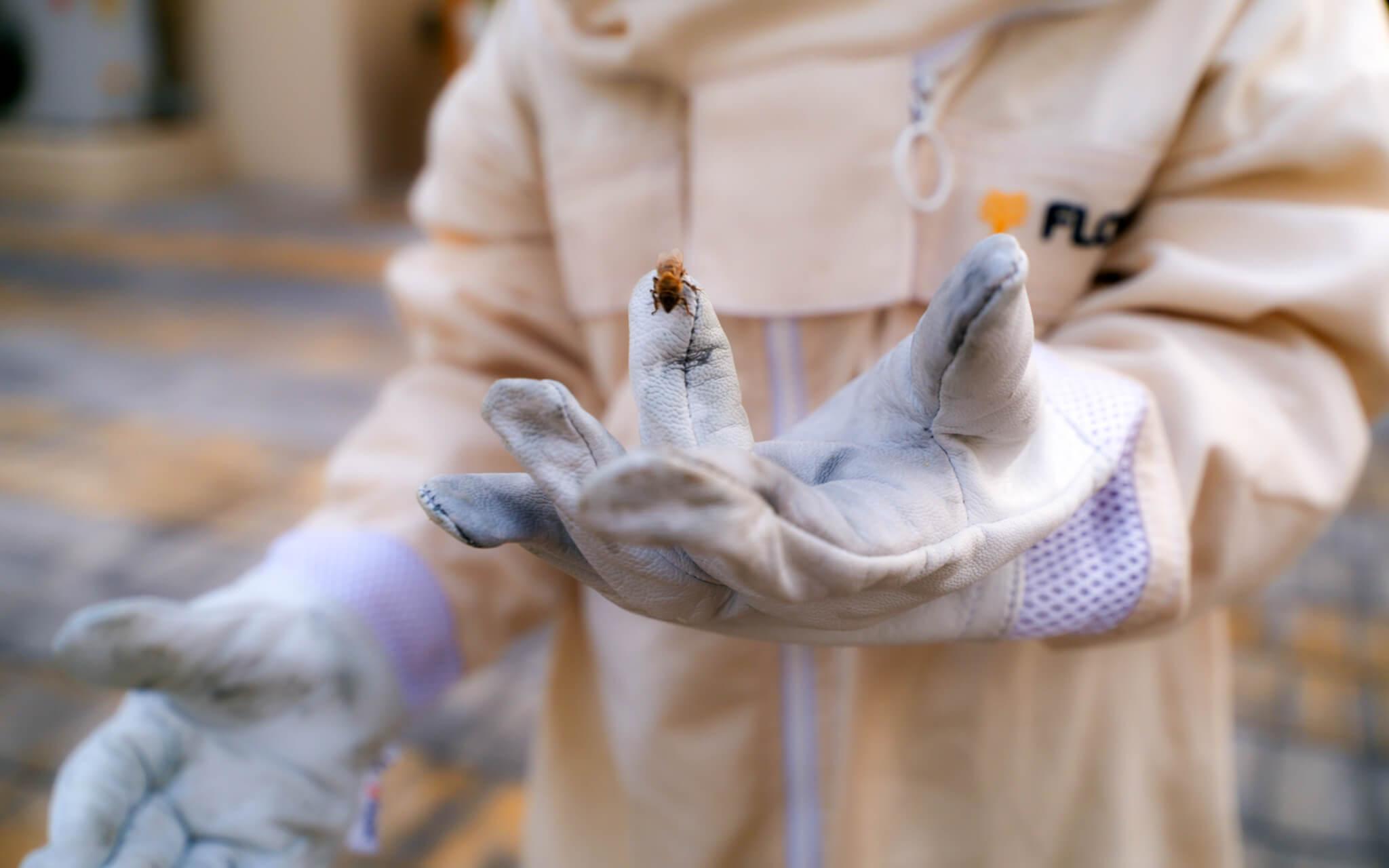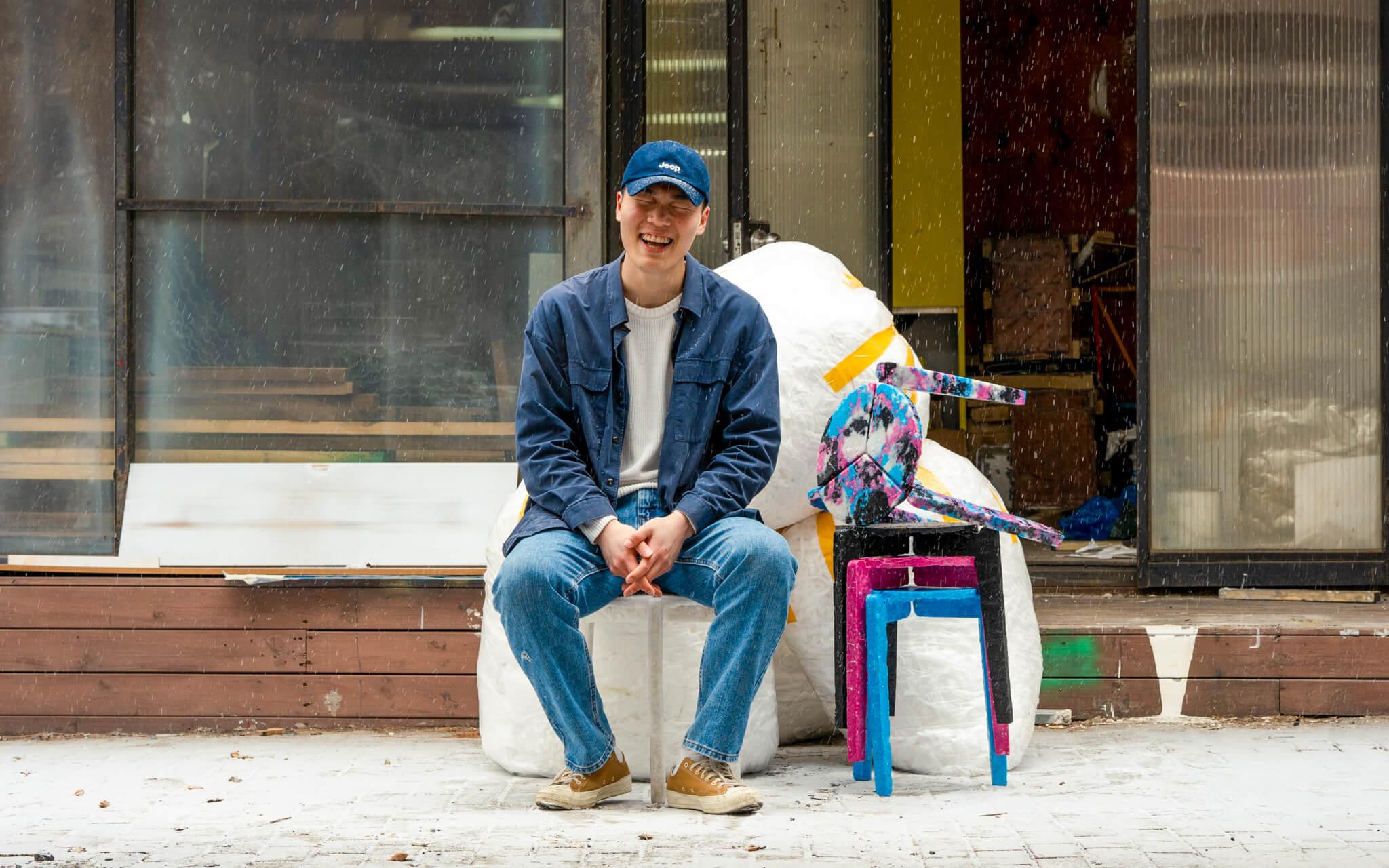The Artistic Engineer of a Complex Land
Nick Viney is a creative director at Rewilding Coombeshead, a regenerative farmer and an artist. Her work combines over 30 years of experience in nature restoration and creativity, helping to restore the UK’s soil biome to health.
Nick Viney wants to talk about the land.
“You've got to imagine soil as the gut health of the earth,” she begins. “It’s popular now for people to look at their own biome, to understand more about their gut flora and how that promotes their health.”
I nod enthusiastically, as I, too, have become invested in everything related to gut health. “Good bacteria will empower you,” she explains. “The same happens on the surface of the Earth.”
With upwards of 30 years of experience in regenerative farming, permaculture, and veterinary science, Nick is practically bursting with examples of how the United Kingdom has mismanaged its soil.
She dives right in.
Originally a conventional cattle and sheep farm owned by Derek Gow, Coombeshead is now a 400-acre rewilding project. Located in Devon, Rewilding Coombeshead has now become one of the UK’s most notable conservation initiatives - most likely, you’ve even seen a few of their beaver releases in your social media feed.
At Rewilding Coombeshead, home of author Derek Gow, Nick serves as the creative director, alongside other conservationists, on initiatives ranging from recovering lost species, such as wildcats and beavers, to restoring and reengaging with the devastated soil. She is also a founding farmer at Rewilding Futures and a member of the European Alliance for Regenerative Agriculture (EARA), making her well-versed and connected in the world of regenerative farming.
Nick is passionate about regenerative practices. Sheep farming and chemical agriculture in particular, Nick explains, deteriorated the health of the UK’s soil. “Sheep were not indigenous to the UK, but now we have many. We’ve manipulated the land and the natural order to accommodate mass production of sheep, 85% of which we export. This doesn’t seem right. ”
Although they were first introduced to the UK for domestication a long time ago, sheep are not native to the UK. The impacts of farming have created soil compaction, and the subsequent monoculture practices of industrial agriculture have been relentless, pushing the limits of soil health to the brink.
Things have gone too far.
However, pockets of helpful communities of conservationists, like Rewilding Coombeshead, are working to restore the gut biome of the world's soil as holistically as possible. “We've eradicated so much of our nature that just walking away and allowing nature to do its thing doesn't always work. Because the pockets of nature are so isolated, native plants and animals simply cannot find each other to breed,” Nick says.
Nick explains the logic behind Coombeshead’s thorough, hands-on approach. The process of “rewilding” must be done from every angle with thoughtfulness.
“We’ve used Iron Age pigs (a cross between a wild boar and a domestic breed of pig) to disrupt the landscape,” Nick shares excitedly. Wild boar, although not extinct in the UK, have been marginalised, and small numbers have been accidentally reintroduced through escapes from regional farms. Rewilding Coombeshead utilises the boar’s truffling habit to upturn the soil and expose seed banks that are deeply buried.
This moment gave me an insight into the responsibility I had as a landowner and the privilege and the opportunity to allow this land to do something completely different, something much more aligned with nature.
“Then comes adding the biomass to the land,” Nick continues. “We're bringing lots of rotting wood to help the mycorrhizal connections in the soil connect again. So when you're planting trees, which we've done in thousands, you also give those trees the underground networks that help them communicate and exchange nutrients,” she explains. Trees do talk to each other – how cool is that?
“I’ll just finish on water,” she says, hurrying along. There’s much to cover. “Beavers are the quickest, cheapest, most expert creatures in creating water resilience by building complex wetlands,” Nick lights up, sharing that the UK government announced today that it is shifting towards more free releases of beavers. “ At Coombeshead, we host the species recovery centre with an organisation called Keep It Wild. Here we work with the Beaver Trust to translocate beavers and prepare them for reintroduction, along with many other native species.”
At Rewilding Coombeshead, the unnatural order established by centuries of disruptive practices is being redressed by the reintroduction of these native species, led by expert Derek Gow.
Back at her home, Rewilding Futures, Nick, the visionary behind this holistic rejuvenation project, also draws on her artistic background as a means to process the cruel and self-serving practices that have been enacted upon the nature around us.
“I use the arts as a tool to raise awareness of things that I’m not comfortable with,” she says. “I once produced a kind of montage-painting of ‘square pigs,’ to depict these pigs that get crammed into the industrial pig rearing units.” Her voice is tinged with pain. “You know, we’ve done some terrible things to fit animals and soil into industrial agriculture.”
“I come from a fairly traditional farming background, and I wish I’d known how much damage I was doing to the land,” Nick contemplates. The realisation of the harm caused by humanity came while she was raising three young children and giving her farm a rest. As Nick walked through her own stretch of Atlantic Rainforest on Dartmoor, she thought, “‘What have we been doing?’ I’m seeing orchids, young trees… It is obvious what I've been doing has been preventing this land from being its best self.”
Despite the fear of standing on her own in what can be a tight-knit, traditional farming culture, there was no going back for Nick. “This moment gave me an insight into the responsibility I had as a landowner and the privilege and the opportunity to allow this land to do something completely different, something much more aligned with nature.”
Since then, Nick has devoted her life to sharing information on the impacts of monoculture, poor farming practices, and reckless land mismanagement. This mission came with life-altering challenges, such as being ridiculed by the farming community she had been a part of her whole life. However, change can be challenging – it's essential to remain positive and compassionate. Her latest film, ‘Farming The Flood’, celebrates nature-based solutions and those farmers brave enough to stand up for a brighter, regenerative future.
For Nick, letting nature take its course is imperative.
“We are so fixed on this baseline of how things look. Like the fabulous hedges that the farmers around here keep. We think that’s how nature should be – tidy.”
The artist in her feels nature’s need to be free. The farmer in her knows how to engineer the path for the terrain around her to find their freedom once again.
“Nature doesn't do tidiness; nature does complexity. ”
After all, living creatures thrive in an environment where they can be themselves.
Most Popular
The Climate Tribe delivers stories about Biodiversity and Conservation, Circular Economy, Food and Water , and how they intersect with climate.
Subscribe
Get the latest stories inspiring climate action around the globe straight to your inbox.






